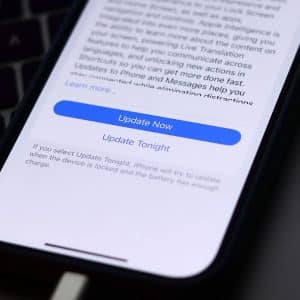Apple, a prominent member of the techUK trade body, is doubling down on its resistance to the UK Government’s proposed expansion of surveillance capabilities under the Investigatory Powers Act (IPA). This stance, first voiced last year, highlights the technology giant’s commitment to protecting data security and user privacy. TechUK, representing industry giants including Apple, has penned an open letter to the British Government, urgently requesting a meeting to discuss the contentious amendments to the IPA.
The origins of the UK’s surveillance ambitions can be traced back to 2006, culminating in the passing of the Investigatory Powers Act in 2016. This legislation enabled the Government to demand tech companies create backdoors in their products to bypass encryption.
Apple, at the forefront of this debate, has consistently opposed such measures, emphasizing the importance of end-to-end encryption in services like iMessage and FaceTime. In response to last year’s proposed Online Safety Bill, which threatened to ban encrypted messaging services, Apple was prepared to pull these services from the UK market rather than compromise on encryption standards. This firm stance led to the Government retracting that part of the bill.
However, the UK Government’s persistence is evident in its latest attempt to add further powers to the Investigatory Powers Act. The proposed amendments could potentially inhibit Apple from issuing security updates, especially if such updates interfere with the UK security services’ espionage activities on iPhone users.

Apple’s vocal criticism of these proposed amendments highlights the company’s deep concerns over global privacy. The UK Government’s desire for unique authority, including advance notice of security features and the power to block emerging security technologies, poses a significant threat to data security and personal privacy. Such control would place companies in a difficult position, having to choose between compliance with UK directives and providing global users with essential security features.
The urgency of the situation is underscored by techUK’s request for an immediate meeting with the Government. The trade body’s members, which include tech giants like Apple, Adobe, Amazon, Google, Microsoft, and even the American Embassy in London, aim to discuss the detrimental economic impacts of these legal changes.
The letter stresses that the proposed powers could deter technology investments in the UK and place companies in a challenging position, having to navigate conflicts between UK requirements and their own national laws. The potential global scrutiny of the UK’s legal changes also raises concerns about the UK’s attractiveness as a technology hub, with possible repercussions for consumers.

The letter concludes with a plea for an opportunity to collaboratively enhance the bill, emphasizing the need for a balance that safeguards both national security and the technology sector’s ability to operate effectively.













